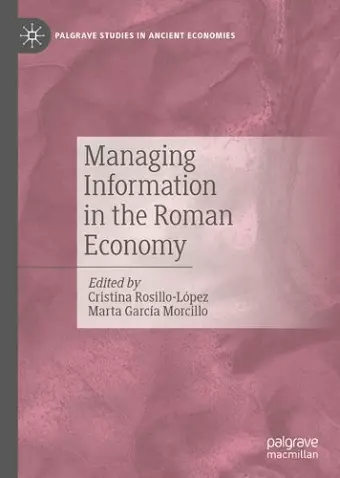Managing Information in the Roman Economy
Marta Garcia Morcillo editor Cristina Rosillo-Lopez editor
Format:Hardback
Publisher:Springer Nature Switzerland AG
Published:24th Dec '20
Currently unavailable, and unfortunately no date known when it will be back

This volume studies information as an economic resource in the Roman World. Information asymmetry is a distinguishing phenomenon of any human relationship. From an economic perspective, private or hidden information, opposed to publicly observable information, generates advantages and inequalities; at the same time, it is a source of profit, legal and illegal, and of transaction costs. The contributions that make up the present book aim to deepen our understanding of the economy of Ancient Rome by identifying and analysing formal and informal systems of knowledge and institutions that contributed to control, manage, restrict and enhance information. The chapters scrutinize the impact of information asymmetries on specific economic sectors, such as the labour market and the market of real estate, as well as the world of professional associations and trading networks. It further discusses structures and institutions that facilitated and regulated economic information in the public and the private spheres, such as market places, auctions, financial mechanisms and instruments, state treasures and archives.
Managing Asymmetric Information in the Roman Economy invites the reader to evaluate economic activities within a larger collective mental, social, and political framework, and aims ultimately to test the applicability of tools and ideas from theoretical frameworks such as the Economics of Information to ancient and comparative historical research.
“The book not only avoids generating unnecessary and unhelpful controversy, but is also ultimately successful in its aim to identify and analyse information asymmetries in a range of areas, most notably Roman real estate markets, labour and aspects of trade. … this volume has the potential to introduce one of NIE’s most practical concepts to a wider audience of students and researchers – including those who do not think of themselves as economic historians. Specialists will find the book’s contents informed and engaging.” (Colin P Elliott, The Classical Review, Vol. 72 (1), 2022)
ISBN: 9783030540999
Dimensions: unknown
Weight: 591g
339 pages
1st ed. 2021